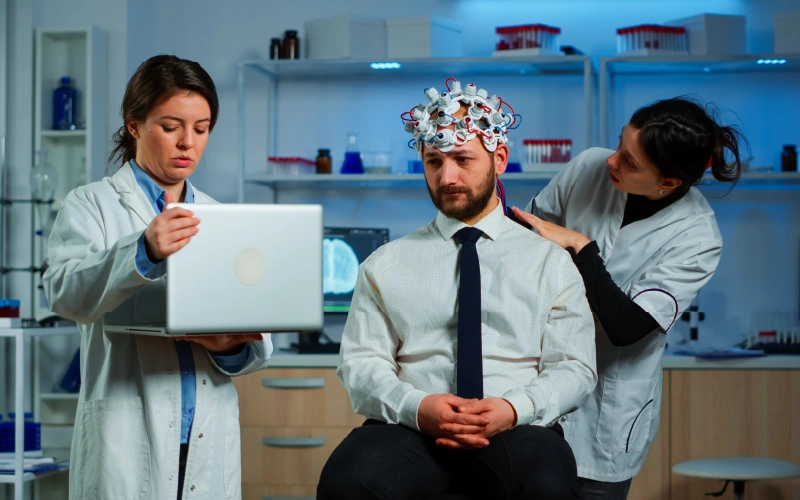

In this article
TogglePsychology courses after 12th open the door to a fascinating world where science meets human emotions, behaviour and the mind. From understanding why people think and act the way they do to supporting mental well-being and emotional growth, psychology courses offer meaningful and impactful career paths.
Whether you’re drawn towards mental health, cognitive science, counselling or applied psychology, these programmes allow you to turn curiosity into purpose. Courses like BA or B.Sc. in Psychology, Clinical Psychology and Applied Psychology provide a strong academic foundation, complemented by hands-on learning, internships and real-world exposure.
Given below is the list of top psychology courses after 12th-
| S.No. | Course Name | Duration | Core Focus | Key Subjects / Areas | Career Pathways |
| 1. | BA (Hons) in Applied Psychology | 3 Years | Application of psychology to real-life problems | Clinical, Industrial, Organisational, Forensic Psychology | Social Work, Education, HR, NGOs, Mental Health Support |
| 2. | BA (Hons) in Psychology | 3 Years | Practical understanding of human behaviour | Behavioural Science, Perception, Decision-making | Research Assistant, Behaviour Analyst, Education, HR |
| 3. | BSc in Psychology | 3 Years | Scientific and biological approach to psychology | Biological Psychology, Research Methods, Cognitive Science | Counsellor, Psychiatric Assistant, Research Roles |
| 4. | BSc in Health Psychology | 3 Years | Psychology’s role in health and illness | Behavioural Medicine, Health Behaviour, Medical Psychology | Healthcare Settings, Wellness Programmes, Public Health |
| 5. | BSc in Neuropsychology | 3 Years | Brain–behaviour relationship | Neuroanatomy, Cognitive Neuroscience, Psychopharmacology | Research, Rehabilitation Centres, Clinical Support |
| 6. | BA in Counselling Psychology | 3 Years | Therapeutic practices and emotional well-being | Counselling Theories, Psychotherapy, Ethics | Counsellor, School Psychologist, NGO & Wellness Roles |
Now, let’s explore each course in detail to help you find out which course truly matches your passion and future aspirations.
Here is an additional list of courses you can take up in psychology after the 12th grade:
The cost of psychology courses after 12th in India can vary widely based on the type of course and the institution. On average-
After finishing a psychology course, students can take on various roles. Common career options include:
Choosing psychology as a career after completing 12th grade opens a lot of horizons for understanding the human mind and mental processing at really deeper levels. From basic courses in general psychology to specialised fields in clinical or organisational psychology, you can choose based on your interests and individual aspirations. If you are interested in exploring this complex relationship between mental health and overall well-being, then B.Sc. Health Psychology course at The Apollo University can be the perfect choice for you. Apply now!
BA or BSc in Psychology is the best choice after 12th, depending on whether you prefer applied learning or a scientific, research-based approach.
You can enrol in a BA or BSc in Psychology or choose diploma and certificate courses. Later, you can go for a master’s to advance your knowledge.
Yes. It is a lucrative career choice as Psychology offers growing opportunities in healthcare, education, corporate sectors and research.
Entry-level psychologists earn around ₹3–4 LPA, while experienced professionals can make ₹8–15 LPA or more, depending on specialisation.
Yes. You can. Many universities allow students from any stream to pursue psychology courses after 12th, provided they meet the eligibility criteria.
Yes. You can become a psychologist without NEET by pursuing BA or BSc in Psychology, followed by a master’s degree and required licensing.
